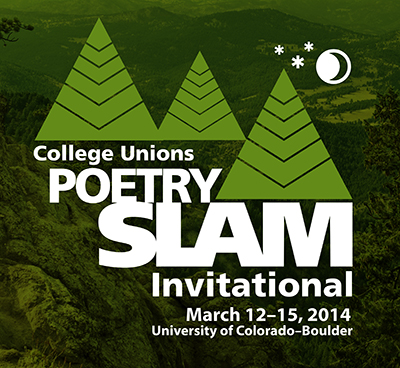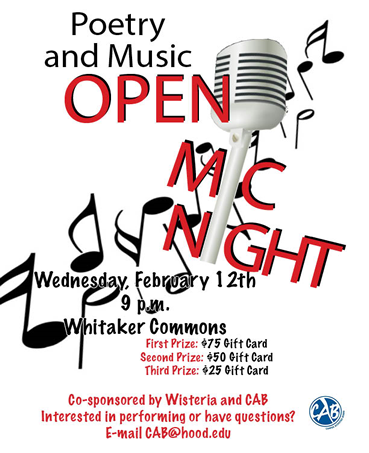 Doctor Katharine Cohen of the Consultant firm, IvyWise, wrote an article in 2011 about the top five colleges to find poetry inspiration: University of Michigan, Berklee College of Music, Sarah Lawrence College, Brown University and Kenyan College. However, every college has the potential to have a poetic presence. However, was this list meant to promote poetry or the schools a student could write poetry at?
Doctor Katharine Cohen of the Consultant firm, IvyWise, wrote an article in 2011 about the top five colleges to find poetry inspiration: University of Michigan, Berklee College of Music, Sarah Lawrence College, Brown University and Kenyan College. However, every college has the potential to have a poetic presence. However, was this list meant to promote poetry or the schools a student could write poetry at?
“Whether you have been constructing iambic pentameter for years or have just started reciting reverse rhyme, these colleges each offer unique ways to pursue your poetic passion,” Cohen writes, “You can sign up for intensive poetry-focused curriculums, join poetry slams teams and other groups, or even make a hobby out of reading poetry from a college's library collection.”
The thriving poetry communities within college campus’ are nearly impossible to find through the lack of documented statistics of students either interested in hearing poetry performed or writing poetry themselves.
At Hood College there is a community of poetry writers that is just beginning to receive recognition through various performance opportunities driven by a popular campus group CAB (Campus Activities Board). However, the biggest organization associated with the success of poetry in college overall is the Association of College Unions International, otherwise known as CUPSI.
CUPSI is known for their annual competitions of slam poetry and multiple publications from students, professors and poetry lovers. It was started in 1914 by U.S. college faculty advisors. The organization currently has 1,986 undergraduate college students and 3,255 professional members participating in and organizing these events. With only 20 full-time staff members, the organization itself is thriving on their yearly performances that have an extensive list of rules for both performances and audience members.

Hood is still new to these kinds of performances but CAB has continued with their pursuit of artistic performances with their open mic nights for Campus’ “Whitaker Wednesday’s”. On September 10 of this school year, CAB had an Open Mic talent show with first, second and third place prize-winners. On October 10th an email was sent out to undergraduate students about a second chance to perform and display their art if it is in the form of poetry, music or art.
Although the Hood campus is just now jumping on the bandwagon by broadening their openness for poetry, the campus still has a hidden iambic pentameter within its student body that is just waiting to be read and performed. CUPSI’s competition is a competition for “slam poets” which is a specific type of poetry meant for competing. For now, Hood’s performers show a variety of poems and written works. Although with the help of CAB, Hood’s poets and writers can begin making their way into the college’s public space.
Most Colleges have their own groups or literary publications that keep the spirit of poetry alive on campus. The literary magazine at Hood College, Wisteria Magazine, accepted original works from Hood Students. All the submission requirements are listed on Hood’s website, under Wisteria.
“We want your original poetry, prose, creative nonfiction, drama, art, photographs and photos of 3D art. Written submissions must be no longer than 1,000 words or 60 lines of poetry in a .doc format.”
November was a very popular month to celebrate poetry. On November 6, Hood College held an event where writer and professor Jericho Brown spoke in the Hood’s Honors building, the Marx Center. Hood provided students and staff with a description of his speech and what to expect:
“Jericho Brown, assistant professor of English and creative writing at Emory University, will read from his newest book, The New Testament. His first book, Please, won the American Book Award. His poems have appeared in journals and anthologies, including The New Republic, Oxford American and The Best American Poetry. The books will be available for purchase at the event and at the College's bookstore.”
On the same day, Wells College in New York hosted Kevin Gonzalez, a professor at Carnegie Mellon University. He is best known for his published poetry book from 2009, called “Cultural Studies.” The event was presented by the Wells College Visiting Writer’s Series. This organization was started in 1973, when the school wanted students to be able to engage in meetings and conversations with published writers of poetry and prose.
“The college brings to campus each academic term an average of three or four writers who have distinguished themselves in poetry, fiction, nonfiction, and drama,” the About page on their Facebook highlights, “These writers not only give public readings of their work; they also conduct writing workshops, participate in classes and discussions, and often hold individual conferences with interested student writers.”
On November 19, Louisiana State University’s Honors College Literary Magazine, Fusion, hosted an open mic-night for students.
“The evening began with a poetry slam competition, with small prizes for the winners. After the slam, the event transitioned to an open mic,” according to LSU’s The Daily Reveille.
These kinds of events are meant to attract attention to the poetry community. Not only was November of this year a popular month for poetry events on college campus’; but the last two years overall have more documented events of poetry on college campus’.
“The event will have two special guests; Elizabeth Clausen, an Honors College alumna, and Bill Moran, a graduate student in creative writing. David Judd, vice president of Fusion, said Clausen will talk with the students and answer questions about her life as a writer,” The Daily Reveille’s Lauren Guillot wrote.
The rise of poetry on college campus’ is on the rise. Hood College is catching up with all of CAB’s poetry performances and open mic nights. The schools pull to get students reading and writing isn’t starting from scratch. Every year the freshman class is required to read a book over the summer. These books are incorporated into the first-year seminars each freshman is required to take. Every fall semester, the college invites the Author of the chosen book to speak to the Hood community. These events have become Hood’s own stepping stones into the college world of poetry.